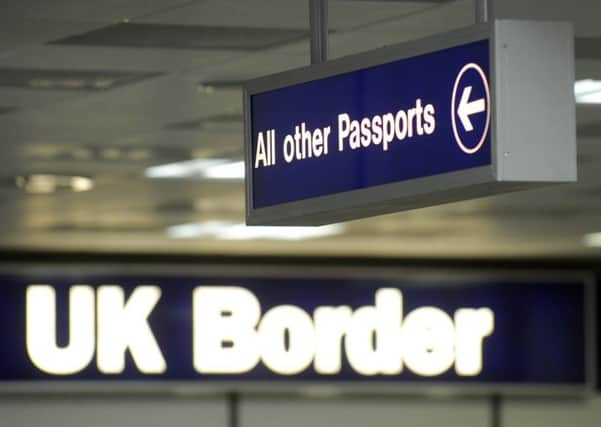Fears rise over pre-Brexit exodus of skilled EU staff
This article contains affiliate links. We may earn a small commission on items purchased through this article, but that does not affect our editorial judgement.


Fifty-six per cent of EU nationals said they were “highly likely” or “quite likely” to leave the UK before the outcome of the Brexit negotiations was known, with healthcare (84 per cent), technology, media and telecoms (64 per cent) and financial services (43 per cent) the sectors likely to be hardest hit.
• READ MORE: Brexit ‘brain drain’ warning for tech firms
Stephen Ratcliffe, employment partner at Baker McKenzie, the international law firm which conducted the survey, warned that companies faced a “significant skills shortage” in the near future, and urged them to support and incentivise employees to stay within the business.
Advertisement
Hide AdAdvertisement
Hide AdThe survey revealed that more than half (55 per cent) of employees from the remaining 27 EU member countries had not been offered any support by their UK employers in relation to Brexit.
Ratcliffe said: “Employers who are reliant on EU workers should be taking active steps to engage with their employees on the subject of Brexit, and to offer them support and assistance to address areas of uncertainty for them and their families.
“Last week’s election result and the current uncertainty around the immigration status of EU nationals, underlines the need for all employers – especially those reliant on EU workers – to address their employees’ concerns around Brexit as a priority.
“Failure to do so could result in a significant skills drain for businesses in the near term, regardless of the Brexit deal reached.”
He said the situation could be exacerbated if there were delays to the negotiations with the EU.
• READ MORE: Brexit ushers in more competition for skilled staff
The law firm surveyed 250 EU citizens educated at degree level or higher, employed by companies either in the FTSE 250 or with revenue of over £50 million.
Advertisement
Hide AdAdvertisement
Hide AdIts report also found that 70 per cent of EU staff surveyed in the UK felt more exposed to discrimination since last June’s EU referendum vote, with 38 per cent of those describing themselves as feeling “vulnerable” or “very vulnerable”.
In addition, more than one in four people surveyed feared job losses, with respondents citing the biggest threat to their jobs as discriminatory hiring practices.
“These findings would suggest that the perception of discrimination is a key driver for skilled EU nationals seeking to leave the UK,” Ratcliffe added.
“Employers should be refreshing their anti-discrimination policies, particularly in the context of recruitment, and offering their staff support as they face the consequences of Brexit.”
A study by the Nursing & Midwifery Council earlier this week showed the number of nurses from the EU registering to work in the UK had fallen 96 per cent since the Brexit vote.